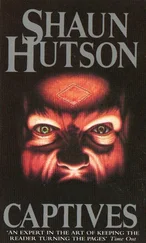Norman Manea - Captives
Здесь есть возможность читать онлайн «Norman Manea - Captives» весь текст электронной книги совершенно бесплатно (целиком полную версию без сокращений). В некоторых случаях можно слушать аудио, скачать через торрент в формате fb2 и присутствует краткое содержание. Год выпуска: 2014, Издательство: New Directions, Жанр: Современная проза, на английском языке. Описание произведения, (предисловие) а так же отзывы посетителей доступны на портале библиотеки ЛибКат.
- Название:Captives
- Автор:
- Издательство:New Directions
- Жанр:
- Год:2014
- ISBN:нет данных
- Рейтинг книги:3 / 5. Голосов: 1
-
Избранное:Добавить в избранное
- Отзывы:
-
Ваша оценка:
- 60
- 1
- 2
- 3
- 4
- 5
Captives: краткое содержание, описание и аннотация
Предлагаем к чтению аннотацию, описание, краткое содержание или предисловие (зависит от того, что написал сам автор книги «Captives»). Если вы не нашли необходимую информацию о книге — напишите в комментариях, мы постараемся отыскать её.
Captives
This is a moving account of a country shaken by communism and anti-Semitism and haunted by recent atrocities, from "a distinguished writer whose vision of totalitarianism is close to Kafka's cloudy menace, universal yet internalized" (Richard Eder,
).
Captives — читать онлайн бесплатно полную книгу (весь текст) целиком
Ниже представлен текст книги, разбитый по страницам. Система сохранения места последней прочитанной страницы, позволяет с удобством читать онлайн бесплатно книгу «Captives», без необходимости каждый раз заново искать на чём Вы остановились. Поставьте закладку, и сможете в любой момент перейти на страницу, на которой закончили чтение.
Интервал:
Закладка:
“You walk, you walk forever, you have lost time and it has lost you. . a terrain, sprinkled with seaweed and tiny shells; hearing thrilled by that unbridled wind that freely roves. . we watch the tongues of sea foam stretch to lick our feet.”
Under the waves, under the stroking foam, the sea roars in the great castle of water.
• • •
The sea boomed. The thick castle walls kept out the noise of waves, but other sounds collided and crossed paths in the great hall: the release of bolts, metallic clanks, keys turning in locks, latches, heavy springs. Between them, odd, erratic breaks. One, pause. Two-three, pause. Four-five-six, pause. One, pause, two-three, then four-five-six, pause. Over and again, perpetual clanking, a continuous murmur from the right. To the left, short breaks; to the right, the crowded taps of many fingers, hammering.
Raised my eyes. Found myself on a chair placed to the right of a medium-sized table. Gazing across it, a powerful, broad-cheeked man with big hands. The discontinuous noises from left and right never stopped. Turned to see what was happening behind me. Small tables in two rows. Metal blocks vibrated on each table: calculators, typewriters. Backs bent over all the tables, and the anonymous, hunched bodies kept moving their arms, beating the keys of machines for writing, calculating, and checking.
Spun around and bumped against the arm of the man who sat on the other side of the table. He held a large sheet of pink paper. Examined him, twice. Dressed in a worn-out, navy blue suit, his floppy shirt collar with its points twisted over a dusty Bordeaux-colored tie: my cellmate, the spy, Mişa Burlacu, set to report on my “good behavior.” Smiled at him. Mişa smiled back. Extracted the sheet of pink paper from his large, sweaty fingers. A form with many horizontal and vertical columns, covered with statistics. Under the printed letters, filled out in ink, between parentheses: (Model). Job Code. Beneficiary. Object. Job Category. Executing Workshop. Project Number. Date to Return for Processing. Figures filled out in ink. Wanted to ask Mişa what it was about, or — smiling as his mission required — Mişa wanted to ask me.
Worn-out, navy blue suit, as his mission required. Mişa held a rectangular sheet of pink paper. Took it. The Statistics Sheet had many horizontal and vertical columns. The machines kept rattling on: calculators and recorders to the left, typewriters and trackers to the right. Scanned the headings and columns. Job Code. Suddenly something rang. Some adding or writing or transmitting machine had started signaling errors. Turned around: the row of backs on the left hadn’t moved an inch. Arms twitched rapidly, mechanically, at every table. At the end of the row to the right, at the back of the room, a huge specter held a receiver to its mouth — probably the telephone. There was, indeed, a telephone on each table. Large as it was, the whole room was saturated with thick smoke: on every table — to the left and right — a cigarette burned in a round ashtray.
Rotated back to see broad shouldered, broad faced, sweating Mişa — smiling as he continued to keep watch. Gave him a look. The noises grew louder. There was no telling left from right anymore: calculation and typewriting everywhere. Held out my hand. The Statistics Sheet. Circuit Five. Installed Power. Kilowatt. Felt something soft between my fingers. Stared at my hands: a tuft of silky hair, a wig. Mişa was smiling, wearing gloves — in evening costume now. His wig hadn’t passed completely into my hands. Both of us held it. Would have to ask him, whatever it might be — to talk to him. . to talk to him at any cost. Opened my mouth. Too late. The siren was ringing — or maybe it was the phone. Would have to move, but couldn’t. The sound came from nearby, at my feet. Mişa smiled, bent slightly toward me, took the wig in his immense white-gloved hands, left it on the table, and leaning slightly under the table, he raised the sharp, black tail of his dinner jacket. He placed the telephone on the table, took the receiver in his right hand, and lifted it. For a moment there was nothing but the sound of our breath and the others’ panting behind it.
Through the earpiece, a man’s voice commanded:
— Covalschi here. Tell that dopey woman that there’s no radio broadcast. I piss on her idiotic stories.
The sordid remarks thundered clearly out of the phone so that the whole office resounded with the echo of the rhythmic voice that kept saying the same lousy things, over and over again.
— Tiberiu Covalschi here. You can tell Auntie that she’s never gonna hear her foolish stories on the radio.
Covalschi kept cursing. It was horrifying. Something had to be done: break the earpiece, the office, the voice and — all the voices panting in the background.
— Covalschi here. Tell that plucked chicken that her little stories. .
Palms dampened with cold sweat, flung an arm around the telephone receiver. Closed my eyes halfway. The wardrobe, the stove, the radio. Kept holding the receiver in my hand. No one spoke. Background noise. Dial tone. The receiver slipped from my hand. . again, my shoulders relaxed. Stroked by gentle waves, my feet among the seaweed. Never to return, covered by eternal waters, dipped under the silky water. Complete stillness. A long hall, a castle with thick walls, a table. On the table: a heap of pink pages. Picked one up. A form. Statistics Sheet. Code. Beneficiary. Circuit One, Two, Three. Circuit Four. Raised my eyes. In front of me a man smiled. He had a wide face, sleek hair, and he held the pink sheet in his hand. Was supposed to ask him what it was about, but the bell or siren had gone off. In the rear there were little tables with small, vibrating machines. My neighbor’s smile was dead.
Was supposed to put out my hand, pick up the receiver, move my arm, and bring it to my ear, but now blows were raining on the glass walls. Sprang to my feet. Came to myself in the bulb’s weak light. Someone was knocking on the glass, on the glass door. Was there in a step. Flicked the light switch. The light blinded me. Twisted the spring, the lock, the spring. Pressed the handle, the door, the handle. The door opened in. Pulled it a little more.
Dressed in a navy blue suit, the tall man had a wide, blotchy face.
• • •
Solid, freshly shaved, smelling of the hairdresser. Dark suit, white shirt. Under the soft collar, the tie pulled tight. Mid-weight coat and a briefcase in his right hand. Hair: sleek, thin.
— Mişa, how are you?
The person standing in the doorway to the right of the stairs opened his mouth in shock, accidentally left it open, and straightened his shoulders to deal with the obvious lunatic.
— Doesn’t Comrade Professor Smântănescu live here? The suit-shirt-collar glanced at the small piece of cardboard attached to the door.
— Aren’t you Mişa? Mihai Burlacu? Fell silent, came to myself, clung to the wall, made excuses: Pardon me. Excuse me. Yes, yes, the lady lives here. A mix-up. My misunderstanding. . a workmate. Confused you with someone from the office. Forgive me. Yes, do come in. She does live here.
Hurried to invite him in: an act of absurd, hasty compensation. The door had already closed behind the stranger, who entered and was now waiting.
— Ah, the things one forgets. My sister isn’t at home right now. But who are you?
Ready to attack or defend, the guest looked at me suspiciously.
— An acquaintance. Engineer Grigore Butnaru. Grig.
Let him rattle for a moment or two. The visitor evidently feared a trap. What fun to watch him deal with Madam Professor’s husband! Farces leapt to mind: all equally good. It was hard to choose.
— My sister told me about you, the madman finally remarked. Personally, I don’t live here.
Читать дальшеИнтервал:
Закладка:
Похожие книги на «Captives»
Представляем Вашему вниманию похожие книги на «Captives» списком для выбора. Мы отобрали схожую по названию и смыслу литературу в надежде предоставить читателям больше вариантов отыскать новые, интересные, ещё непрочитанные произведения.
Обсуждение, отзывы о книге «Captives» и просто собственные мнения читателей. Оставьте ваши комментарии, напишите, что Вы думаете о произведении, его смысле или главных героях. Укажите что конкретно понравилось, а что нет, и почему Вы так считаете.












